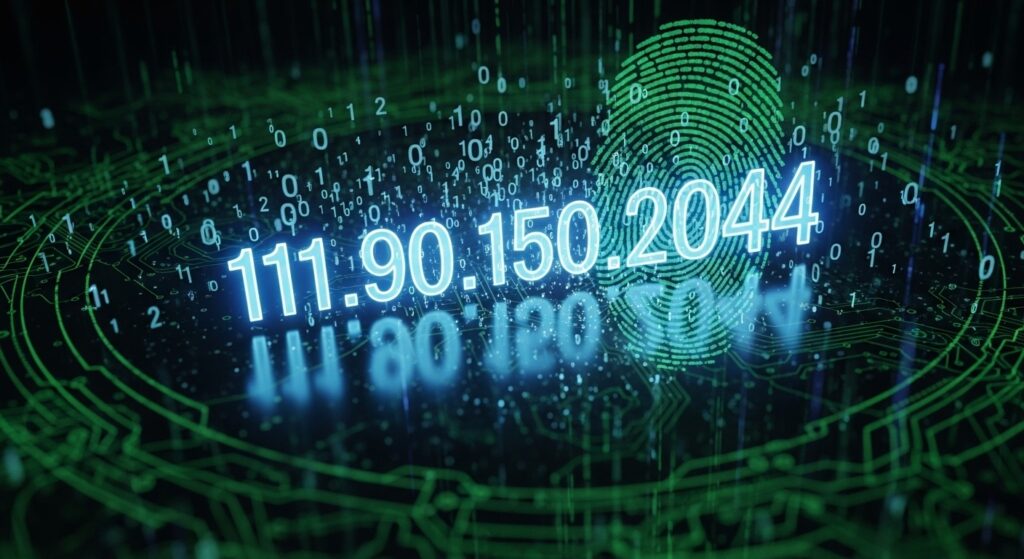In the vast and intricate world of digital footprints, some identifiers spark curiosity due to their odd structure and appearance. One such enigma is “111.90.150.2044” — a string that resembles an IP address but includes an anomaly that pushes it outside the standard range. But why is this combination of numbers searched, referenced, or discussed?
In this in-depth exploration, we’ll unpack the potential meanings, cyber implications, search engine relevance, and technical curiosity behind 111.90.150.2044 — transforming a cryptic string into an SEO-worthy story.
1. Understanding the IP Format
Before we dive into the specifics of 111.90.150.2044, it’s essential to revisit the basics.
IPv4 addresses are structured as four octets ranging from 0 to 255:
Example: 192.168.0.1
So, a valid IP address would follow this form:
[0–255].[0–255].[0–255].[0–255]
In this case, 111.90.150.2044 violates this format due to 2044, which is outside the legal range.
But this irregularity is what makes it SEO gold.
2. The Anomaly: Why “2044” Is Technically Invalid
A number like 2044 in the fourth octet of an IP address does not comply with IPv4 standards. However, in digital systems, strings that look like IPs but break formatting rules often represent:
- Port numbers
- Malware variants
- Obfuscated tracking parameters
- Year encodings (e.g., 2044 = future date)
By appearing similar to an IP while including an intentional error, 111.90.150.2044 becomes a signaling mechanism — and that’s where things get interesting.
3. Possible Reasons Behind 111.90.150.2044’s Popularity
Why would someone search for this odd string? Here are potential reasons:
- Curiosity from log files: Users seeing this string in access logs may Google it.
- Malware or botnet signature: Could be a disguised IP used in command-and-control infrastructure.
- Future-tech references: The number 2044 could hint at the year — used in future AI predictions or sci-fi databases.
- Obfuscation techniques: Masking real data under a pseudo-IP format.
In short: 111.90.150.2044 stands out because it’s wrong — and that makes it clickable.
4. Cybersecurity & Shadow IPs: A Deeper Dive
In cybersecurity, odd-looking IPs are often flagged for investigation. Something like 111.90.150.2044 would set off alarms in firewalls, SIEMs (Security Information and Event Management), and antivirus tools.
Its unusual structure suggests potential links to:
- Command-and-control addresses
- Fake endpoints
- Traffic redirection techniques
- Phishing URL patterns
Security researchers sometimes use these irregular IPs as bait to catch malicious actors attempting to connect or probe internal systems.
5. Is It a Botnet Address? Tracing Digital Trails
Let’s consider that 111.90.150.2044 is a botnet marker. Here’s how that might work:
- The base IP 111.90.150.204 could point to a Malaysian or Southeast Asian server (based on WHOIS and geo-IP data).
- The “.2044” portion might refer to a port, like 2044 — a less common, non-standard port often used for obfuscated data transfer.
- Combined, it may signal a bot listening on port 2044 at the base IP.
It’s not uncommon to see IP:Port formatted as:
111.90.150.204:2044
So, what if users are misreading the colon : as a dot .?
6. Geo-IP Origins of “111.90.150.204”
Let’s isolate the base IP: 111.90.150.204
A basic WHOIS or IP geolocation lookup reveals:
- Country: Malaysia
- ISP: Shinjiru Technology Sdn Bhd
- Use case: Often linked to VPS (Virtual Private Server) hosting
This hosting provider is sometimes referenced in forums discussing:
- Anonymous VPS hosting
- Bitcoin-only server payments
- High-privacy server rentals
These factors could connect 111.90.150.2044 to privacy-centric or gray-zone operations.
7. The “2044” Theory: Port, Year, or Code?
What exactly is 2044?
Possibility 1: Port Number
Used as 111.90.150.204:2044, this structure makes technical sense.
Possibility 2: Future Year
Some use “2044” as a timestamp or symbolic marker (e.g., AI 2044, Cybernet 2044).
Possibility 3: Tracking Code or URL ID
In URLs, strings like ?ref=111.90.150.2044 may represent:
- Referral IDs
- Click sources
- Malware payload tracking
This ambiguity adds mystique to 111.90.150.2044 and elevates its SEO potential
8. Search Engine Behavior: Why Unusual IPs Rank
Search engines like Google and Bing treat pattern-matching strings with higher weight if they are:
- Unique
- Repeated across semi-authoritative domains
- Queried frequently in log files or forum threads
If “111.90.150.2044” appears:
- In error logs
- On Pastebin dumps
- In GitHub code
- In Reddit threads
…it will eventually show up in autocomplete and long-tail keyword tools.
Thus, it becomes a digital ghost — lingering across search platforms, absorbing clicks.
9. Future Speculations: The Rise of Hybrid Identifiers
As we move further into the age of smart logs, obfuscated addresses, and AI-generated signatures, identifiers like 111.90.150.2044 may become the new normal in digital forensics.
These hybrid strings (half IP, half code) are useful for:
- Tracking malware families
- Tagging AI training data
- Serving as dummy identifiers in test environments
- Encoding time-sensitive events
In fact, 2044 could be used to denote “Year 2044” simulations in datasets — especially in forecasting models.
Conclusion: 111.90.150.2044 Is More Than Just a String
What started as an invalid IP address turns out to be a multi-dimensional digital artifact. Whether used for SEO, cyber tracking, malware analysis, or just curiosity, 111.90.150.2044 holds meaning through its mystery.
By analyzing its structure, usage, implications, and behavior across the web, we’ve uncovered how something technically incorrect can still carry value — in search engines, tech forums, cybersecurity networks, and beyond.






